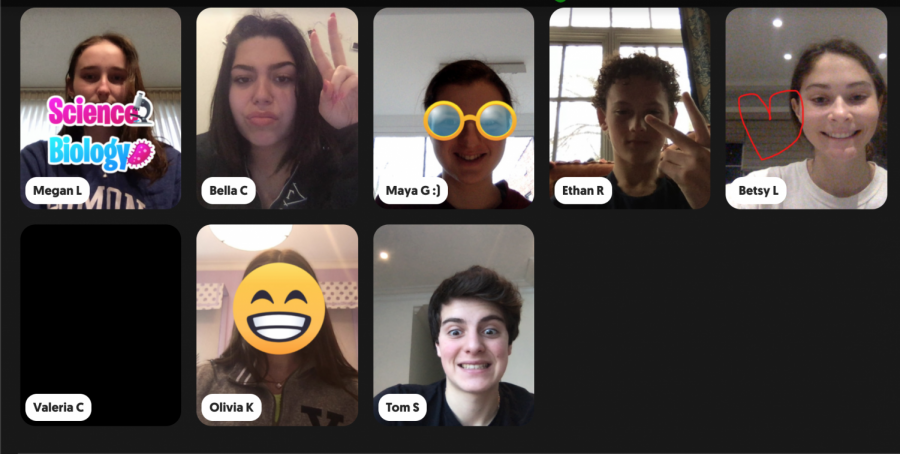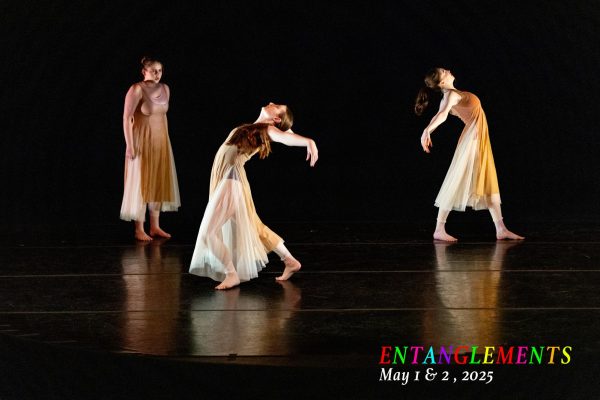Teachers Make Effort to Keep E-Learning Engaging
April 3, 2020
The transition from traditional school to e-learning has forced teachers to alter their lesson plans. From March 18 to March 20, teachers held their classes remotely. Various classes held Zoom meetings, Padlet discussion boards, and shared Google Docs. While interacting with classmates through a grid full of faces, connecting Padlet notes, and pressing a blue reply button on a comment may not be ideal, teachers’ ability to adapt to online education is both vital and noteworthy.
Among the many teachers who created engaging and worthwhile assignments was Mr. Kendrick. Mr. Kendrick’s Economics class shared and discussed current events articles and invested in foreign currencies for a simulation that ends in two months. His assignments connected the material students learned to the current global economic situation. Caroline Creamer, a senior who currently takes Economics, says, “I think Kendrick did a really good job because he made our assignments really fun and interesting, and I felt like they deepened my understanding of how the theories we have learned can be applied. His assignments forced us to think about how the current state of the world, in light of recent events, might affect the economy and what government responses make sense or don’t.” She notes that Mr. Kendrick weaved current events into their curriculum. Mr. Kendrick’s assignments allowed Caroline and her classmates to see how events, such as the coronavirus pandemic, affect the economy on a global scale.
Mr. Kendrick hopes his students digest the current situation from an economic standpoint. He says, “Students are hopefully staying up to date with the latest information from reputable sources to help deepen their understanding of this pandemic and how unprecedented the government and Fed responses have been in the United States…It’s just mind-blowing to know the government has passed a fiscal stimulus equivalent to nearly 10% of GDP at a time when the macro stats are so strong. It goes to show how dramatic they expect these measures of economic health to change.” He acknowledges the drastic economic changes occurring and hopes his students do as well.
Although Economics and biology don’t often overlap, the biology department approached e-learning similarly to how Mr. Kendrick did. The team connected current events in the wake of the COVID-19 pandemic to biology. Ms. Kutschke says, “We did a mini-unit on COVID-19 to help diffuse some misinformation that people may be seeing in all of the headlines.” By educating students on the science behind the virus, they can understand the severity of the situation and determine fake news. The two-part assignment included an information slide deck, videos, and articles focusing on the genome and structure of coronavirus, both viruses and pandemics in general, and what makes a person more susceptible to COVID-19. The class later discussed key points and evaluated news headlines to determine which contained valid information.
Nicole Lucas, one of Ms. Kutschke’s students, says, “The science department did a really great job…I think that it’s really important for our teachers to make engaging assignments such as this one while we are doing e-learning because it’s much harder to focus and stay on task while doing work at home.” She thinks a crucial part of e-learning includes captivating lessons, something Nicole believes the biology department did a nice job of.
Contributing her opinion to the conversation, junior Malia Brandt says, “The teachers’ attitude affects the online learning experience. If it is clear that a teacher isn’t very interested in teaching like this, I feel like students would feel less inclined to put effort into the assignments.” She emphasizes the importance of teachers who want students to enjoy e-learning despite the challenges it presents and the ripple effect a teacher’s attitude creates.
Ms. Kutschke adds on, “I definitely think teachers need to be as optimistic, and as realistic, as possible when dealing with these unprecedented circumstances and what lies ahead. It’s important for teachers to try to maintain a similar attitude and routine for e-learning so that there is at least some familiarity when students are navigating new platforms.” She understands that both students and teachers need to adapt to recent changes and believes continuing the typical school attitude is important.


























































